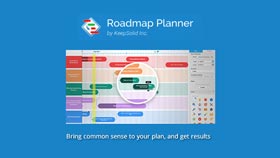
Becoming a teacher is something many of us thing about. However, if you’re wondering whether it could be the career for you, here are some pros and cons.
Teaching Benefit: Sense of Achievement
A sense of accomplishment at the end of each working day is something many teachers rave about when they talk about why they wanted to enter the field. Knowing you've made a difference to someone's life can be a real motivator. Lynn Gaston, a fourth-grade teacher in Forth Worth told us that it's very satisfying when you see the minute a child understands a new concept and goes on to apply it in the next task. Just seeing that light bulb moment and the big smile on a kid's face when they learn something new makes you know you've done a good job.Drawback: Poor Pay
You will often hear teachers say that the career path "is a calling." Those that are in it just for the money often don't last long. Gaston told us that there is a huge discrepancy in the amount of work you have to do as a teacher and the amount you get paid. You don't get to earn what you're really worth. You just have to be happy with whatever the school district pays you. If you work in a poor school district, you can expect to earn a lot less than what your credentials might be worth in the private education marketplace. Gaston also made it clear that there are not many similar jobs that require you to have years of specialized training and take on a lot of responsibility, yet pay very little. The median average annual salary for elementary school and kindergarten teachers is US$55,490. This means that 50% of teacher earn less than that amount each year. When it comes to working in high schools, the median pay for teachers is US$58,030.
Drawback: You're Always A Figure In The Public Eye
Teachers tend to be held to a very high standard. Many would say it's too high. Rod Preston teaches English in Dallas and he explained that once you're employed as a teacher, you're expected to maintain the role 24/7. It doesn't matter if you are shopping in town, dining out with friends or taking a family vacation, you are expected to maintain the role of a teacher and conduct yourself as a representative for the school you work for. As a teacher, you are sure to experience a much greater level of scrutiny and consequences for any inappropriate behavior can be much harsher than they would be if you worked in a different industry.
Drawback: Parents
Tracy Stevens, who used to work as a special education teacher in Mansfield, Texas, informed us that one of the main complaints she had about her position was the lack of parental participation or cooperation. Few things are as frustrating when you're a teacher than dealing with parents who flat out refuse to help their children improve at school. When you enter the teaching profession, you are almost guaranteed to experience parents and guardians who will hold you completely responsible for their children's poor grades. Some parents might even try to bully you into altering grades, while others may spend no time helping their children with homework. Of course, you may also have to deal with "helicopter parents." These are parents that can't help but get involved in absolutely every aspect of their kid's education.
Benefit: Long Vacations
Arguably one of the biggest advantages to being a teacher is that you get a three-month vacation between school years. While you receive your salary for the entire year, you only need to work nine months. Some districts have flexible paycheck options. For instance, you might be able to choose to receive a higher paycheck for the nine months you work instead of receiving a payment for every month of the year. However, the majority of teachers opt to receive a set paycheck every month, so they don't have to worry about planning their finances for the summer.
If you’re interested in teaching, then read this blog from Teaching Personnel on getting into it as a career.














 PureVPN Discount Coupon Code 84% Off for Lifetime Subscription
PureVPN Discount Coupon Code 84% Off for Lifetime Subscription Scrivener Discount Coupon for Windows and Scrivener 2 for MAC - 35% Off
Scrivener Discount Coupon for Windows and Scrivener 2 for MAC - 35% Off Roadmap Planner Discount Coupon 95% Off for Lifetime Professional Plan
Roadmap Planner Discount Coupon 95% Off for Lifetime Professional Plan Bizplan Premium Discount Coupon 97% Off for Lifetime Subscription
Bizplan Premium Discount Coupon 97% Off for Lifetime Subscription